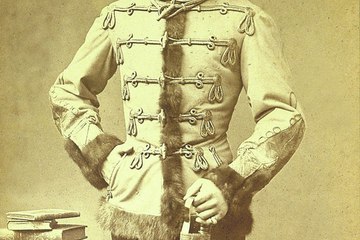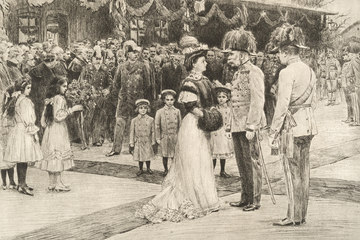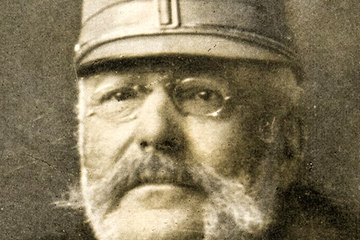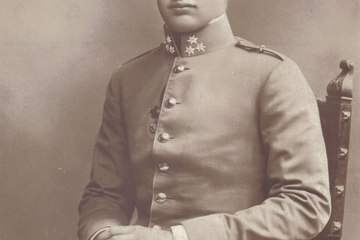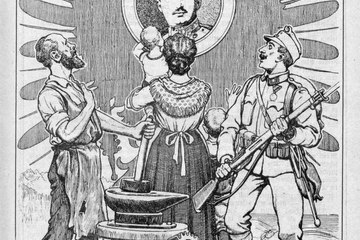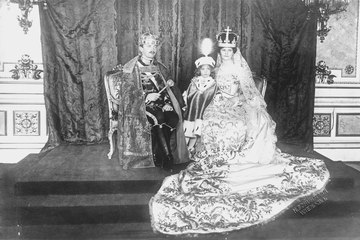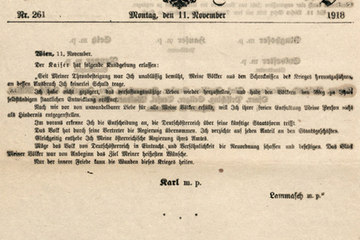The role of the dynasty
The dynasty played a crucial role in the self-image of the Habsburg Monarchy; after all, the original existence of the multi-ethnic state was bound up with the House of Habsburg-Lorraine. The Habsburg Empire was a product of dynastic politics and in the age of national states increasingly seen as an outdated relic.
The ageing Emperor Franz Joseph functioned as an other-worldly symbol of consistency, but also stood for stagnation and fatigue. The need for reform was obvious, and the hope for a change in the system was associated above all with the figure of the crown prince.
After the death of Crown Prince Rudolf, the succession in the House of Habsburg had to be reconstituted. Family conflicts arose – it was no secret that the relationship between Emperor Franz Joseph and his designated successor Archduke Franz Ferdinand was troubled.
The assassination of Sarajevo changed the situation entirely. The First World War confronted the Habsburg Monarchy with new problems that the dynasty and empire were no longer capable of solving.
When Franz Joseph died in 1916 after 68 years of rule, the Monarchy lost a major identification figure. His successor Karl, politically inexperienced and overtaxed in his role, had few personal resources with which to counteract the impending dissolution.



